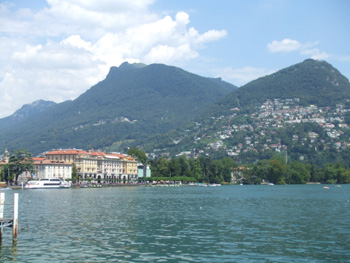We are developing the social individualist meta-context for the future. From the very serious to the extremely frivolous... lets see what is on the mind of the Samizdata people.
Samizdata, derived from Samizdat /n. - a system of clandestine publication of banned literature in the USSR [Russ.,= self-publishing house]
|
Rob Fisher has an interesting posting up about police harassment, as displayed in a reality TV show. Basically, the police took it upon themselves to mess with some apparently quite innocent citizens, fishing for crimes that they might have committed. And it turned out one of them had apparently done something evil. He had, apparently, committed the crime of failing to be on the police driver database. Said the policeman: “You don’t exist” …It turned out that the database did contain him, but spelt slightly differently.
Rob Fisher is depressed about all this. But what I think this episode – by which I mean not just the police harassing people, but it being on television, and Rob Fisher copying out what they said and blogging about it – is that one of the benefits of total surveillance (see my immediately previous post) might be that the authorities might find themselves having to behave rather better.
On Saturday January 6th of what is still next year – Happy New Year when it comes everyone! – I will be giving the first of Christian Michel’s talks in his 6/20 Series of the year 2007. My talk will be entitled “Getting to grips with the Total Surveillance State and the Total Surveillance Society”. And for reasons which will become all too clear if you read the rest of this posting, I would appreciate some help. Last week I sent Christian the rather long and discursive ramble below concerning my thinking on this subject, which he had to shorten to turn it into a useful email announcement. What follows is a very slightly amended and extended version of that original ramble. As I say, all pertinent answers to and comments on the many questions I am now asking myself would be greatly appreciated… by the way, I already know that I need to be paying a lot of attention to this guy.
Some talks are given because the speaker has something important to say, and is very confident about what that something is, and that it is important. The first talk I gave to the 6/20 Club (on January 6th 2006) was of this sort. Oh, it had blurry edges, as all talks will, but the central thesis was something I was really pretty sure about and still am, namely that A-bombs and H-bombs had turned major war from something that Great Powers had to prepare for at all cost, into something they had to avoid at all cost. Hence globalisation. A nice and clear, nice and understandable thesis. Not necessarily right, but if wrong, then wrong in a nice clear way.
But then there are the talks such as the one I will be giving on January 6th 2007, which I am giving not because I know what to say about the Total Surveillance State and the Total Surveillance Society, but because I do not, but want to find out. About the only thing I am sure of concerning this topic is that it is an important topic, and worthy of all our best efforts to make sense of it. And if I agree to talk about this topic, I will have to think about it, no matter how much of an effort that may be.
Here are some of the questions, points, thoughts now rattling through my head on this topic:
- Total Surveillance is definitely on its way. Saying that the technology won’t work is delusional. Sure, governments waste millions on technology, but it eventually works, if only because eventually you can buy the necessary kit in the High Street. On the other hand, so long as progress persists, new kit will means new blunders, neand w surprises (often nasty) about what it can be used for.
- The USSR tried totally to control economic outcomes. Can its abject failure illuminate what I now sense will be a similar failure to control safety outcomes and crime outcomes? Crime statistics certainly have a USSR steel production feel to them.
- Is total surveillance such a bad thing? Maybe not, if the only laws and behaviour enforcements are modest in scope, and very reasonable. But total surveillance enforcing crazily voluminous and tyrannically intrusive laws is very bad news.
- In general, what happens to the world when everyone else can easily learn anything in particular about us that they want to learn? What social institutions falter? (Marriage? Insurance?) Is privacy a human right or a mere historical phase? A phase which now may be passing?
- Is celebrity obsession a pre-echo of a world in which all are potential celebrities, due to the ubiquity of completely invisible and unblockable cameras and microphones?
My main conclusion so far is that Total Surveillance will mean very different things depending on what else happens along with it. You cannot analyse the phenomenon in isolation.
For instance, just who will be allowed to browse through all those sound and vision files. Will it be everyone? Or only a self-appointed elite? Both arrangements have major hazards attached to them.
Since writing the above stuff to Christian, I have begun to fixate on another question, which is this: What does an individual have to gain by being totally surveilled? Fewer aggressive attacks against him is an obvious answer. Insurance premiums might be another. (If you live a totally safe and careful life, you might gain greatly if your insurance company can see this for themselves.) But I suspect that there are many other answers. (Simple showing off springs to mind.) Which is why I think that a great deal of, if perhaps not total, surveillance is probably here to stay.
As already stated above, I wish all of Samizdata’s readers a Happy New Year, but fear that for many of them, the above thoughts will have done little to contribute to such happiness.
Michael Totten has written a couple very interesting articles called Hezbollah’s Putsch and Hezbollah’s Christian Allies.
Well worth checking out as you just do not see stuff like this in the mainstream media all too often. Also consider dropping your mouse on his PayPal donations button to support his excellent international reportage.
Given that the papers are full of the most appalling socialist commentators sharpening their knives to butcher Britain’s remaining economic freedoms, when ‘right-wing’ (in their terms, God help us) Tony Blair leaves office, it is nice to be able to point out a ray of sunshine.
I like Nick Cohen. He is often wrong, but he does have the sense to follow his own mind rather than retailing the received wisdom . And he is intellectually honest and self-aware, which is more than can be said for most commentators on the left. This is an impressive example:
Too many on the liberal-left, including me, don’t feel in our bones that it is as wrong for the state to take billions of pounds from taxpayers and waste them on, say, the fatally overambitious National Health Service IT project as it is for the owners of Farepak to take the Christmas savings of thousands of poor families and throw them away.
Leave aside for the moment that no one was compelled to take the appalling bargain offered by Farepak in the first place, and that no one, including the same poor families, has an option about the taxes going to the mad NPfIT or the destruction of their privacy that it entails. Leave aside that, even if one counts as robbery in the same way as the other, the NPfIT is more than 120 times as bad. (Though one couldn’t pass that topic without noting Gordon Brown took out of the nation’s pension funds in one early budget, what it would have taken 300 Robert Maxwells to steal.)
Cohen has recognised (1) that there is something not quite right about the disproportionate outrage lavished by the left on the Farepak disaster, when government spending takes money from people who need it and gives them nothing; and (2) that some other people do not share the reflex. He offers the insight as a matter of electoral strategy for Labour, so insight (1) may be a bit weak. But it looks to me like progress. Cohen can not quite see what is wrong with his viewpoint clearly enough to shift his ingrained value-judgements, but he can see that it might be wrong.
The last American President (indeed, I believe, the last American politician) to really remember what the United States was like before the Hoover-Roosevelt Depression and the New Deal died on December 26th..
From now on every one talks or writes of the time when, for example, American farmers got their income from their customers, rather than the government, will be drawing on second hand information from books and so on rather than their own memories.
The same is true for when people talk of the time when men either did not expect to ‘retire’ (i.e. stop working because they had reached a certain age) or looked to their families and to private investments and fraternities (in the 1920’s ‘fraternity’ did not mean ‘student society’ for most people – it meant a group of adult people in a social and mutual aid society) to finance their retirement.
Was it a better time? Well technology was much more primitive and the capital base much less developed – so living standards were a lot lower. At least the statistics tell me so, although whenever I see film of the time (even socialist propaganda films) the people of the 1920’s look better dressed and more clean cut (or just more clean) than people today. And I do not think that the fact that most people were a lot slimmer was due to them not having enough money to eat themselves fat.
However, I am thinking of what is sometimes (after the actor) called the ‘Harold Lloyd’ America of scientific, economic and social progress (the America that Ford’s Grand Rapids Michigan was very much a part of in the 1920’s). Not the ‘Jim Crow’ (compulsory discrimination against blacks) South where corruption and poverty were much bigger factors.
On race: It was legal to discriminate against blacks in Michigan in the 1920’s (although, as stated above, it was not compulsory), but one of things about being a libertarian that shocks people is that we do not hold that someone should be prevented from discriminating by law. Who one chooses to trade with should be just that – a choice. If a bigot chooses not to take the money from black people (for example by not allowing them to rent rooms in his hotel), or chooses to employ a white idiot over an intelligent black person – that is their loss.
As for the general question of “race relations”. Did people of different races really tend to hate each other more in 1920’s Michigan (and the North generally) than they do now? Or did they just lie less? Judging things Henry Ford’s anti-semitic Dearborn Independent will not do. Henry Ford really did believe that ‘the Jews’ had sabotaged his efforts to make peace in Europe during World War I, but Henry Ford did not speak for all of Michigan, let alone all of the North. Michigan was and is also the State of Hillsdale University , the first college in the nation to let in blacks in on equals terms way back in the 1850’s and a strong supporter of equal treatment of people from all ethnic groups and of women. They were also a stern opponent of government statutes to force people act in ways favourable to blacks or to women or to anyone). With the death of Gerald Ford there is virtually no one left who knows what ordinary people really felt in their hearts in the 1920’s.
As for Prohibition: now there is the ‘War on Drugs’ which produces even more crime and corruption. At least there was a Constitutional basis for Prohibition (the 18th Amendment).
On politics: I confess I do not even know how Gerald Ford voted in 1936 (even if voted at all). I know he worked in the Republican campaign in 1940, but that might have been a protest against FDR going for a third term (which even George Washington had rejected) rather than out of a desire to fight the New Deal.
Certainly Gerald Ford (then an ‘America First’ type person as most Republicans from the midwest were) was against the underhand way that President Roosevelt was trying to get the United States into World War II (and contrary to the myth being against war in 1940 did not mean being ‘pro Nazi’ most, although not all, people who were against war in the United States despised Hitler and the National Socialists), and FDR was certainly violating the law – for example by sending aid to Britain, occupying Iceland, and ordering American forces to destroy German naval forces and dishonestly claiming that the Germans fired first.
On Japan, President Roosevelt’s policy of seizing Japanese assets and cutting off supplies of raw materials to Japan successfully led to war. But the Japanese did not have to be so stupid as to lauch the suicidal war on the United States in 1941 (they should either have just accepted their losses – or helped the Germans against the Soviet Union) and nor did they have to wage the war in the way they did (for example the vile treatment of allied prisoners of war did not benefit Japan in any great way).
Nor did the Germans have to declare war on the United States after the 1941 attack by Japan any more than the Japanese had declared war on the Soviet Union after the German attack on it in June – indeed the failure of Japan to help allowed the Soviets to move vast forces from Siberia to the defence of Moscow.
Whatever the details the actions of both Japan and Germany and the threat of international communism led Gerald Ford to reject the view that America could stay out of the wars of the world – and he became an ‘internationalist’, running against the ‘isolationist’ Republican Congressman in Grand Rapids and supporting Thomas Dewey, Dwight Eisenhower faction of the Republican party who wished to keep American power actively involved overseas.
How does this fit with wanting to keep government limited at home?
Certainly it is possible to support an ‘active’ foreign policy and limited government at the same time as a lot of people have – going right back to Pitt the Elder in Britain, but there is a tension in allowing government to spend a lot and do a lot in terms of defence and foreign policy and trying to keep it otherwise limited – however much writers such William Buckley Jr tried to paper over the cracks.
Oddly enough, I think that Gerald Ford went full circle (or something close to it) in foreign policy. As President he still tried to prevent the betrayal of Laos, Cambodia and the Republic of Vietnam, when Congress cut off support and allowed the Communists to take over in contempt for the peace agreements they had signed, murdering millions of people and enslaving tens of millions more.
However, President Ford’s heart never seemed to be it. He said clearly that Congress was breaking the promises that America had made – but he never made a great campaign of it. It was not that Ford was a pacifist as when the Cambodian Communists captured an American ship, his response was swift and hard, it was that in his heart he did not really believe in great President Wilson style wars for the alleged benefit of foreigners. If the foreigners were too unwilling or too corrupt to defend themselves after almost 60,000 Americans had died for them, perhaps it was time to say “enough is enough” and leave them to their fate (although President Ford did make sure that hundreds of thousands of people fleeing from Indochina were allowed into the United States – and they have proved to be good citizens). → Continue reading: President Gerald Ford…and the end of an era
I have just run across a story which I will not have time to research: the only information I have (other than the industry grapevine) is this fragment from WSJ (it requires a sign up so I will not bother linking):
British tycoon Richard Branson may have a large ego. But is he a threat to American national security? The Department of Transportation seems to think so, and this week it tentatively rejected a bid to put his famous brand name on a U.S. based airline that would be known as Virgin America.
What do these bureaucrats hope to accomplish? Are they trying to stop the biggest investor in the only currently real commercial space line? Do they want to block SpaceShipTwo from being built? Would they prefer space tourism happen in another country with spaceships designed and built and funded elsewhere?
Where do you find people of such beleaguered mental capacity?
I could go on. The US government has caused so much trouble for Branson in his dealings at both the Federal and the State level I can hardly understand why he bothers… but I am glad that he does.
I must unfortunately run now, with much unsaid, or face an empty pantry for New Years!
All governments, all people even, should be held to the same moral standards. If you allow it for Saddam or Uday, then you must allow it for Bush or Rumsfeld. If you forbid it for Bush or Blair, then you must forbid it for Saddam or Ahmadinejad. Anything else smacks of “you can’t expect any better of Middle Easterners”-style of racism, or at least cultural arrogance. Did Saddam lie about WMD? Does Bush rape women or imprison and torture small children? First set out what your standards of behaviour are, and when particular actions in response are justified, and only then consider the example set by particular nations. For if you pay more attention to Iraq than Tibet, say, people might be able to accuse you of being on the side of the tyrants, and your moralising protests no more than enemy propaganda. And you wouldn’t want that, would you?
– Commenter ‘Pa Annoyed’
Like the blue plumaged bird of the famed sketch, Saddam is kaput. Dead. Gone where the goblins go. Not breathing. Deceased. Finis. Done in. No longer dictatiting.
I only wish I had heard the news before i returned from the after hours club celebarations. I would have drunk an extra pint to celebrate the first day of his non-existence and the glory of a Saddam-free New Year!
I guess I will have to toast his departure tonight instead. I will raise high a Guinness to celebrate the first night of an infinite number he will spend toasting in a slightly different way.

Valencia, Spain. January 2006

Warsaw, Poland. February 2006

Lamego, Portugal. March 2006

Shanghai, China. March 2006

Belfast, Northern Ireland. April 2006

Sligo, Ireland. April 2006

Gold Coast, Australia. May 2006

Singapore, May 2006

Marsaxlokk, Malta. June 2006

Meringen, Switzerland. June 2006

Dublin, Ireland. July 2006

Lugano, Switzerland. August 2006

Lake Como, Italy. August 2006

Tallinn, Estonia. August 2006

Brussels, Belgium. September 2006

Cauterets, France. September 2006

Porto, Portugal. October 2006

Antwerp, Belgium. November 2006

Rotterdam, Netherlands. November 2006

Aarhus, Denmark. November 2006

Prague, Czech Republic. November 2006

Barcelona, Spain. December 2006

Seoul, South Korea. December 2006

Panmunjom, Demilitarized Zone. December 2006

Melbourne, Australia. December 2006
There has a been a Treasury report indicating taxes will increase for the next 50 years. If that does indeed come to pass it would be, to state the bleedin’ obvious, a Bad Thing. However that is really not what I want to comment on, but rather…
Last night the Conservatives said the 3.2 per cent increase was equivalent to just over £40 billion in today’s prices or 11.5p on the basic rate of income tax. […] The Conservatives said the Treasury figures exposed the true cost of Mr Brown’s policies, in particular the failure to ensure that taxpayers were getting value for money for the extra spent on schools and hospitals.
Now talk about having your cake and eating it too, or more correctly having our cake and eating it too. Such remarks by any Tory commentator are obviously predicated upon an assumption of wishful thinking and a mayfly-like memory amongst their intended audience. Does anyone remember ‘Dave’ Cameron’s plans to confiscate and redistribute wealth? Or add more expensive ‘green’ regulations to govern people’s lives in order to pander to the voodoo science of the enviro-mentalist lobby? The notion that the Tories are a lower tax/less regulatory alternative to Labour is preposterous if the words of the party’s leader mean anything whatsoever.
So how can a ‘Conservative’ spokesman keep a straight face and claim that rising taxation is a facet of Labour governments when ‘Dave’ have been going to such lengths to make it clear his Tory party represents continuity with Labour’s ideology of authoritarian centrist regulation? If all the UK does is continue to alternate between largely identical Tory and Labour governments, Britain really can look forward to fifty years of increased taxation and the economic and social decay that will bring.
Fortunately I do not see either party lasting anywhere near that long as dominant political forces.
Among the useful tasks accomplished on the Christmas visit to my mother’s house was dealing with (i.e. disposing of) most of my old correspondence. They say that the difference between a radical and a conservative is 20 years. So what should I make of this?
Saxmundham, Suffolk. 14th March 1987
The Editor
The Independent
Sir,
If, as your profile today suggests, the tabloid papers have rehabilitated Boy George as a symbolic “victim of the pushers” then they do drug-users, and the rest of us, who have to support the costs of drug abuse, a great wrong. For they hold out to the user the most powerful and deceptive of excuses: “It isn’t my fault; he made me do it.”
Pushers only supply someone’s demand, and taking a new drug is still a positive decision, even if the first one is free. Continuing a habit requires a long series of decisions to take one’s poison rather than to do other things with one’s time and money. It may feel like a forced choice, but the first step to freedom is to recognise that there is a choice involved. [We might elevate that to a general principle – GH, 2006]
The child’s excuse can still apply: “But I didn’t know… He lied to me. He made me do it.” No pusher is under an obligation to be honest, no in-crowd to evaluate and announce the risks of an essentially exciting-because-surreptitious activity – why believe the authorities about this when it is palpably part of their desire to control you, and they lie about everything?
The greater the repression of drug-use, the more ruthless and dishonest will be the surviving suppliers. (Far from being the Mafia’s enemy, the Drug Squad is its greatest friend, cutting down the competition and making control easier.)
No, the Great and the Good (and the tabloids) have it wrong. The cycle, of horror stories leading to unjustified fears, leading to repression, to ignorance, to gangsterism, more horrors, fears… obscures the relatively simple danger for the user, and vastly inflates the problem for everyone.
There is a step – and a difficult, but the only one – which can reduce in the long run the ignorant bravado, addiction, mess, disease, expense, accidental poisoning, purposeful deception, and organised crime stemming from heroin; the one which throws back all responsibility to the user, who must be able to say, “my decision,” and “I made a mistake.” Legalise it.
Yours truly,
Guy Herbert
Though there are some ways my opinions have evolved (I no longer accept, even for rhetorical purposes the mirror-magic conception of “organised crime”, for example), I am still making the same point to a deaf establishment 20 years later. So, very nearly, is George.
Is there no mellowing path for a libertarian? Am I a singualar case of arrested development? Or is the generational reversal thesis sense when applied to musical and fashion-sense, nonsense on social and political questions?
The OR may not be exclusive, folks.
For my last birthday I was offered jewellery or shotguns. I chose the guns.
– Elizabeth Hurley, via Robert Avrech
|
Who Are We? The Samizdata people are a bunch of sinister and heavily armed globalist illuminati who seek to infect the entire world with the values of personal liberty and several property. Amongst our many crimes is a sense of humour and the intermittent use of British spelling.
We are also a varied group made up of social individualists, classical liberals, whigs, libertarians, extropians, futurists, ‘Porcupines’, Karl Popper fetishists, recovering neo-conservatives, crazed Ayn Rand worshipers, over-caffeinated Virginia Postrel devotees, witty Frédéric Bastiat wannabes, cypherpunks, minarchists, kritarchists and wild-eyed anarcho-capitalists from Britain, North America, Australia and Europe.
|





























